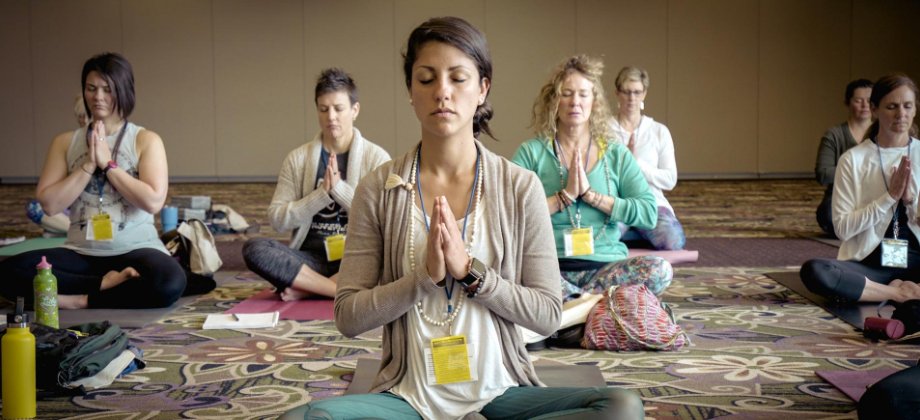
Structuring your Yoga Entrepreneurial Venture to Protect and Stabilise Your Operations
Welcome back to our series. In the previous article, we talked about the documents you will need to draw up as the initial steps to starting your business. We defined the business plan, the different ownership structures, partnership agreements and the optional company bylaws. What will you need after you have gotten the ball rolling? Let’s say the studio is done–virtual or physical, and you are recruiting your employees, structuring your day-to-day operations, and creating your house rules is another set of paperwork altogether.
In this phase of your business, you will find your business has been actualized into existence. So now is the time to work it. Of course, we all have certain criteria and standards on how to run our business as opposed to how the world allows us to run a business. We will experience what it's like to prioritize aspects that we see as more valuable than others and draw up the necessary writings that accompany that.
Like it or not, the dynamic between your relationship has shifted and as a business owner, you will need to prepare for those shifts.
Paperwork for those of you who have already started your business but are looking to organize your studio and manage your employees and clients:
Disclaimer and Liability Waiver
A Liability Waiver is a document your client signs assuming the responsibilities of an activity they are about to embark on. This protects your business should anything untoward happen to the client such as accidents. A Disclaimer states the scope of practice of a business clearly stating what they are and what they are not. As yoga teachers we often have to inform our clients that we teach the practice of yoga, while we might inform our students to visit a medical professional, we are not to give medical advice, diagnose or recommend procedures. This is a disclaimer in itself. We simply put it in writing and practice in our business. While disclaimers and liability waivers exist, it is not common in all countries. Check to see if your country uses a similar or equivalent document,
Employee Contract
I think most of us are familiar with this one😉. This piece of paper defines the scope of practice of an employee, the terms of agreement and conditions between both parties, the hours of service, pay and/or benefits. It shows the potential candidate for employment what to expect from the job and what is to be expected from her as a worker.
Independent Contractor Agreement
This is almost the same as an employment contract but the business does not assume responsibility for the responsibilities of the teacher you hire. This means that they will have their own civil liability insurance, medical insurance and/or social securities. On one hand, it can be more cost-effective to hire teachers who are self-employed because it takes away much administrative maintenance. However, Independent contractors are quite like butterflies, they flutter off to other studios from time to time. This brings us to more points to consider below.
Work-for-hire Contract
This details the work and services provided by someone your company outsourced like a social media manager, freelancer, and/or the like. This paper drafts what needs to be done, the ownership and rights or transfer of them to the company, and the disclosure or discretion involved.
Non-compete Agreement
This applies to your employees. Signing a non-compete agreement ensures your company that your employees won’t be able to join the competition and risk the possibility of sharing your trade secrets. According to an article by signaturely, this agreement is needed if you extensively train your employees or maybe your employee was a former student of yours and has taken the leap of becoming your student. Like it or not, the dynamic between your relationship has shifted and as a business owner, you will need to prepare for those shifts.

Non-disclosure Agreement
While a non-compete is for employees, a non-disclosure agreement is for your independent contractors. A non-disclosure agreement is a document that Depending on your employee structure, whether you have decided to employ your people or hire freelancers, you might need an NDA or an NCA. In my experience, the business of yoga is a fierce and competitive market and preventive measures should be taken.
House Rules
This writing is your studio's commandments. You can either apply them to both workers and students. This ensures the safety and order of your studio’s day-to-day operations. Since this is about the comings and goings of your place, you can take liberties in the tone you would like to set. Take note that this will be somewhat of a reflection of your establishment.
Of course, there is a bundle of other documents to go over. Although, technology has made that much easier with analytics, productivity apps, as well as accounting apps that not only assure you of accurate measures but take away the gruelling task of taxes come springtime. The ones mentioned above are the legalities that need to be crafted according to your business and the team that will be part of it. Your employees and/or your independent contractors contract for their services. If you decide to hire a marketing manager or social media manager to get your word out there will need to sign a work-for-hire contract so that the rights to the campaign are turned over to your business. Lastly, the NDA or NCA protects your business from corporate espionage.
In my seven years as a yoga teacher, I have worked for a legion of yoga studios abroad and in Spain. Either as a long-term employee or via numerous workshops with the same studio. Everyone is different. A whole new world that I had to adapt to. My takeaway was that I learned from all of them so that when the time came for my yoga corner in the sun, I have a semi-finished image of what I’d like for myself. I hope this series of articles can do the same for you.






